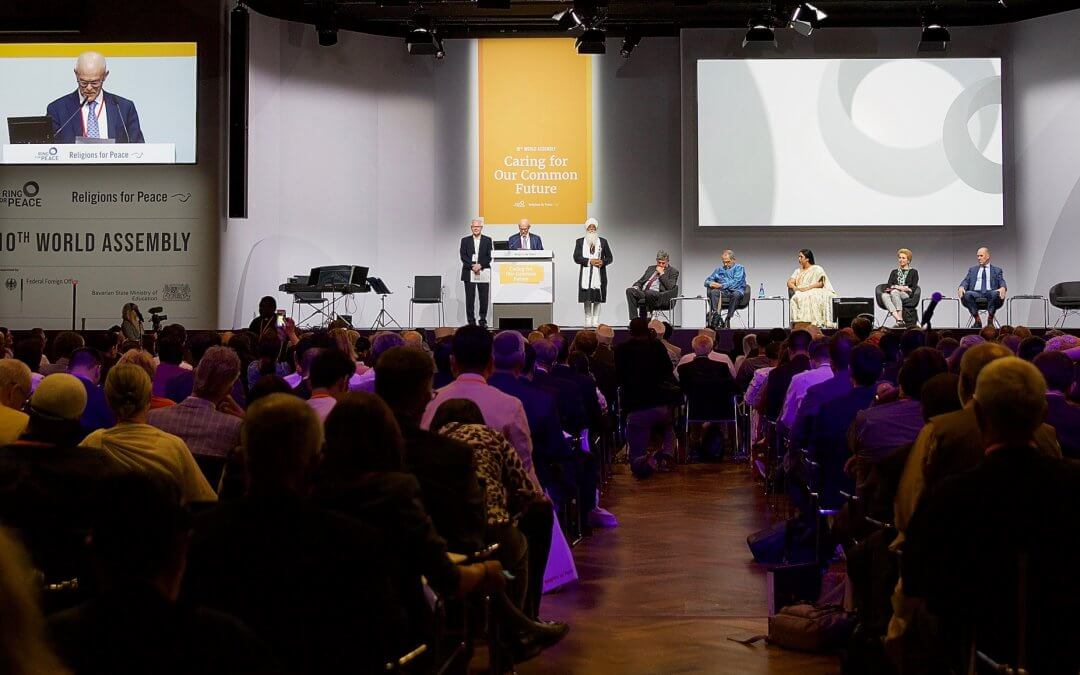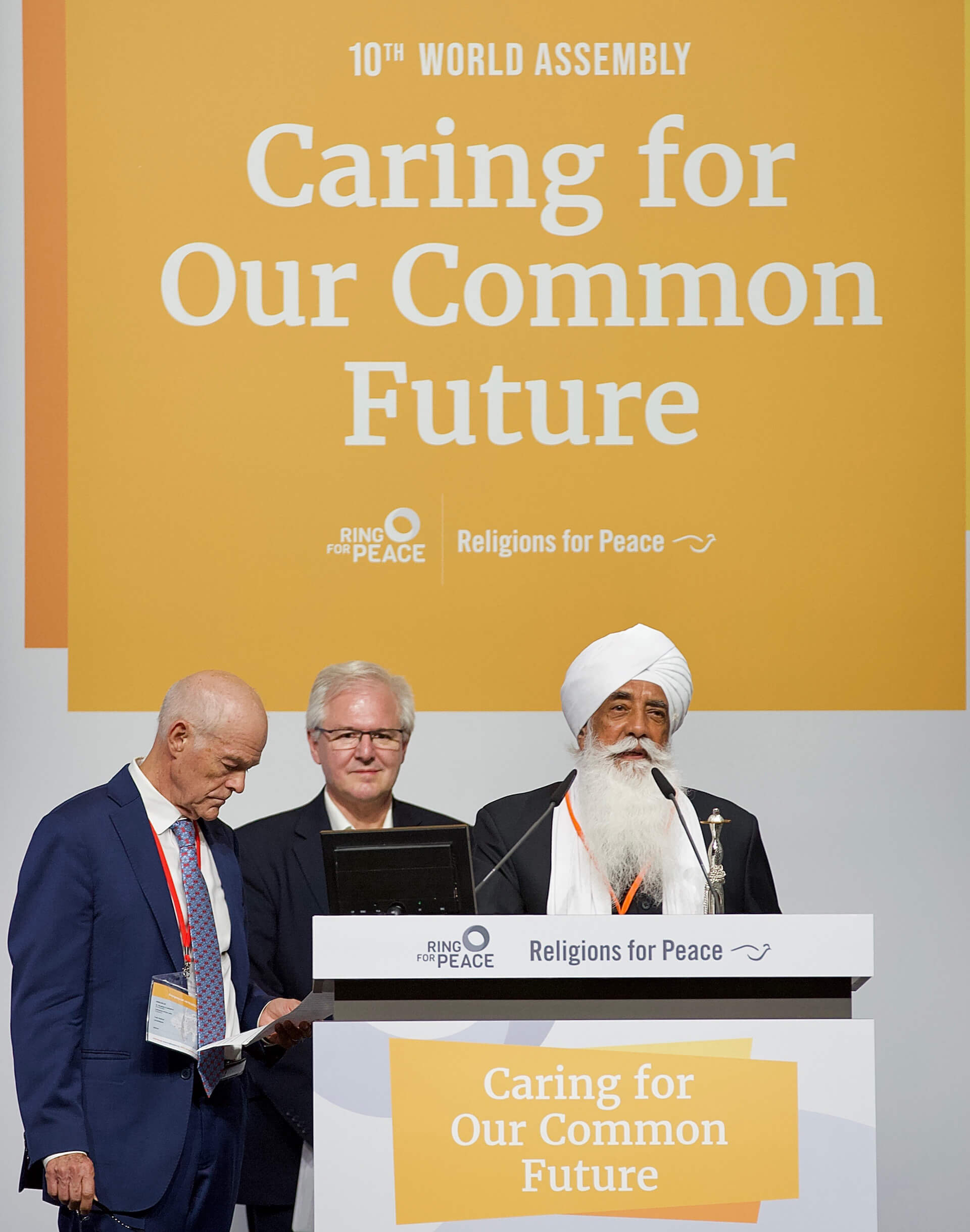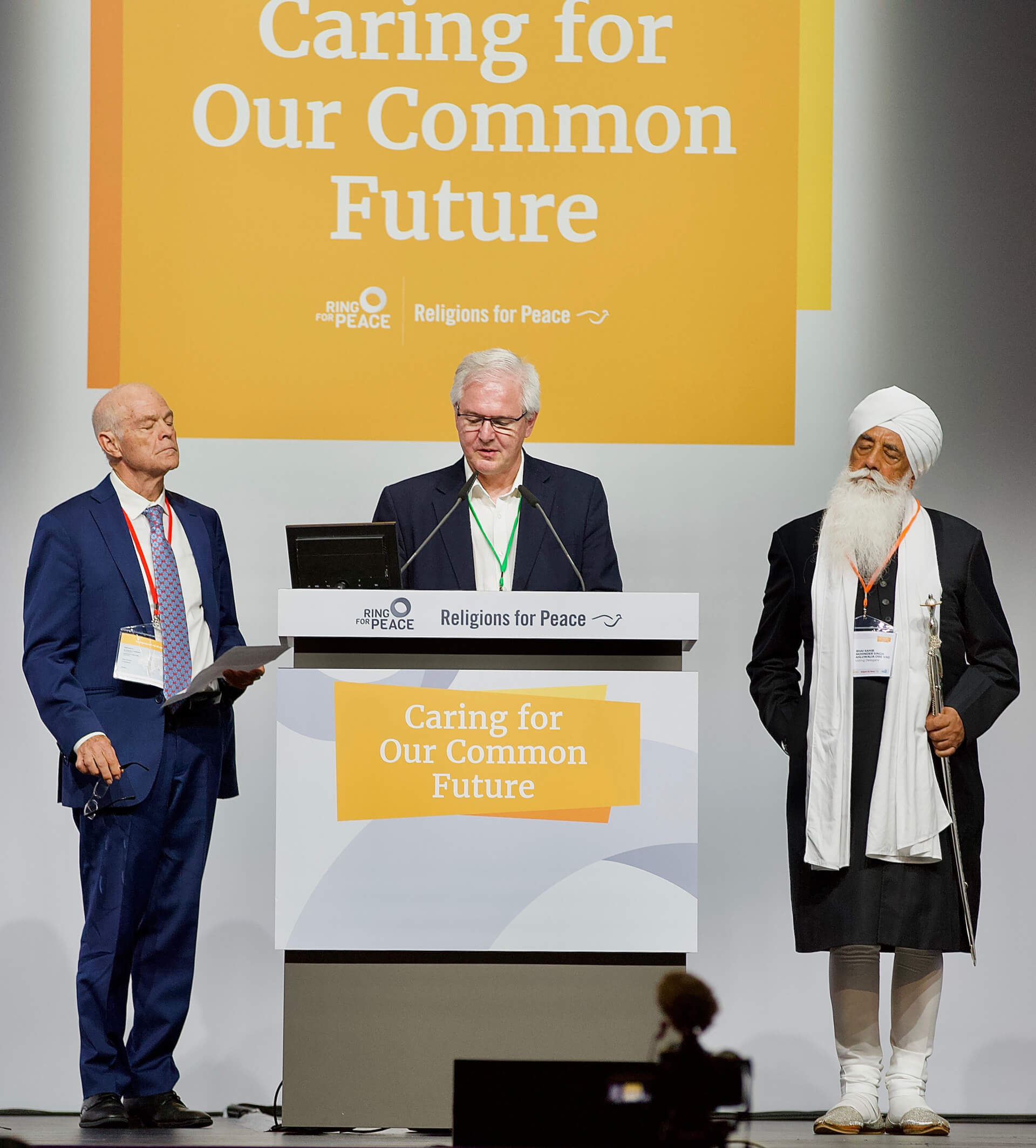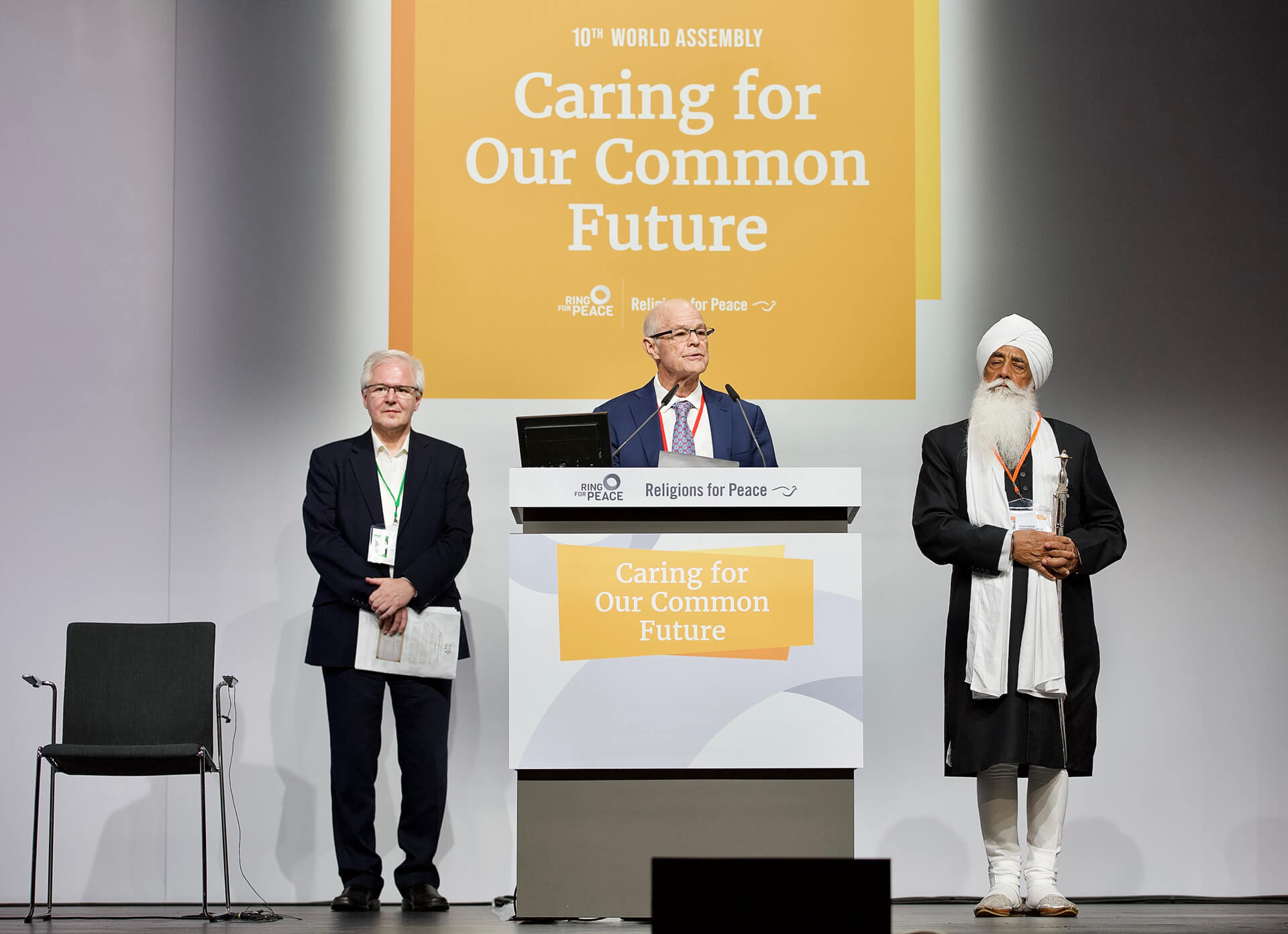THE PEACE CHARTER FOR FORGIVENESS AND RECONCILIATION was adopted by the 10th World Assembly of Religions for Peace (RfP) which convened from 20-23 August 2019 in Lindau, Germany. The World Assembly, opened by the President of Germany, Frank-Walter Steinmeier on 20 August 2019, was attended by some 900 global religious leaders and delegates. Religions for Peace International is the world’s largest and most representative coalition of religious and indigenous communities and operates in over 90 countries.
The concluding declaration of the World Assembly stated, “We are grateful for 49 years of determined focus on building peace and on speaking for those most in need. We are an alliance of care, of compassion, of love. ……. We adopt The Peace Charter for Forgiveness and Reconciliation, convinced that transforming violent conflicts requires the healing of historical wounds and painful memories, forgiveness, and reconciliation. We commit to integrating efforts for healing into all our conflict resolution work.”
The Peace Charter was presented to the 10th World Assembly by the co-convenors of the Peace Charter, Bhai Sahib Bhai Mohinder Singh Ahluwalia (Chairman of Guru Nanak Nishkam Sewak Jatha, UK, and Co-President of Religions for Peace) and Dr William F. Vendley (outgoing Secretary-General of Religions for Peace), and by it’s Director Dr Josef Boehle (University of Birmingham, UK). The Peace Charter’s organisational development began in 2011 and has received support from a wide range of religious, political, academic and civil society leaders.
The Guerrand-Hermes Foundation for Peace (UK), the Fetzer Institute (USA), Religions for Peace International, the Guru Nanak Nishkam Sewak Jatha (GNNSJ), UK, and the Nishkam Centre, Birmingham (UK) were amongst the early core group of supporting organisations.
The Preamble of the peace charter begins with the following introduction:
“The vision of the Peace Charter for Forgiveness and Reconciliation is that the process of forgiving is vital if healing and reconciliation are to take place, as part of our collective efforts to seek justice, harmony and sustainable peace. Fostering and practising forgiveness has the power to transform memories and deep-seated responses to legacies of injustice, conflict and war. It can liberate people from being imprisoned in their pasts and long ingrained mental and emotional conditions. Faith and spiritual traditions guide and inspire us to awaken the best of our human potential, by practising compassion, mercy, kindness, love, forgiveness and reconciliation, and to positively reshape our destinies.”
The Peace Charter was introduced to the World Assembly with the following explanation:
There is an urgent and profound need for reconciliation in communities in conflict and coming out of conflict. Experience shows that conflict settlements and peace accords tend to be short-lived; and that conflicts resume in the absence of reconciliation, which includes addressing deep wounds, injustices, distrust, fear and hatred. Without reconciliation, painful memories remain under the surface and are not brought out into the open to be slowly healed. In conflict situations, very often urgent efforts to end the physical violence do not address the important process of reconciliation, which needs to be advanced through truth telling, accepting responsibility, embracing repentance and transacting forms of restitution.This absence of reconciliation compromises peace settlements and thwarts true positive Peace. Religions for Peace (RfP) has repeatedly experienced the absence of reconciliation among people and communities struggling to come out of situations of destructive violence and oppression. In these situations, RfP has long recognized that a deeper process of forgiveness and reconciliation is profoundly needed to achieve positive Peace. Moreover, RfP knows well that religions have profound and unique resources that can—if mobilized and creatively adapted—contribute to reconciliation.
Adopting the Peace Charter will help to equip the RfP global family of affiliated multi-religious bodies for the important work of reconciliation by raising awareness, deepening understanding, and increasing reflection on the crucial role of forgiveness and reconciliation in sustainable positive peacebuilding. The Peace Charter is a tool that can lovingly inspire, educate and provide guidance in processes of forgiveness, reconciliation and peace building amongst persons, communities of all types and nations. Importantly, it can also be a resource for healing painful historical memories within religions’ various histories. It will also make a vital contribution to value-led peace education in formal and informal settings, thereby strengthening ever more the foundation for more just and peaceful persons, communities and nations.




